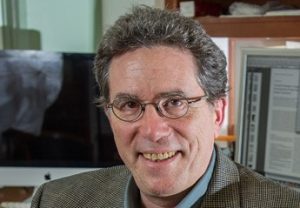The UNC School of Medicine has awarded the 17th Perl-UNC Neuroscience Prize to David Anderson, PhD, the Seymour BenzerDavid Anderson, PhD Professor of Biology at the California Institute of Technology for “his discovery of neural circuit mechanisms controlling emotional behaviors.”

Anderson will visit Chapel Hill April 12 to receive the prize – a $20,000 cash award – and give a lecture on his work at 3 p.m. in room G202 in the Medical Biomolecular Research Building (MBRB), with a reception to follow.
“David is a remarkable scientist who conducted seminal research uncovering the neural circuits key to innate behaviors associated with emotional states, such as defensive behaviors and aggression,” said Mark Zylka, PhD, director of the UNC Neuroscience Center. “Frankly, David could have also won the Perl Prize for the important work he accomplished earlier in his career on neural stem cell fate and differentiation. We look forward to welcoming him here in Chapel Hill as our 17th recipient of this prize honoring the late Dr. Edward Perl.”
Anderson, who is the Director of the Tianqiao and Chrissy Chen Institute for Neuroscience at Caltech and a Howard Hughes Medical Institute investigator, received his undergraduate degree from Harvard and doctorate from the Rockefeller University. He joined Caltech in 1986. He was the first scientist to isolate a multipotent self-renewing stem cell for neurons and glial cells, the two main cell types in the brain. Anderson’s lab identified growth factors and regulatory proteins that control whether stem cells differentiate into neurons or glial cells. He also made critical contributions to understanding nerve-blood vessel interactions.
Anderson is now using cutting-edge techniques to map and manipulate neural circuits that underlie emotional behaviors in both mice and fruit flies. These innate behavioral responses and associated internal states form the evolutionary underpinnings of emotional behavior in higher organisms. These studies may ultimately aid in a better understanding of human psychiatric disorders.